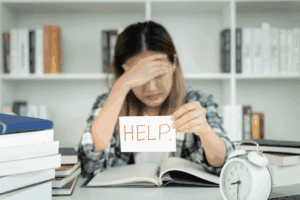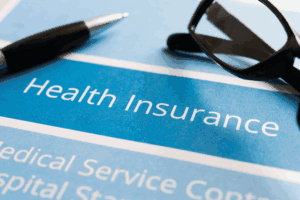Treatment Options For Someone Suffering From Depression
Developing the right treatment plan for you starts with a better understanding of your symptoms and arriving at an accurate diagnosis with your provider. Your provider will help you better understand your illness, the symptoms you are experiencing, the stresses in your life, and any other diseases you may have.
With this complete understanding, your provider can work with you on a comprehensive approach to treating your depression.
You may have already tried some of these interventions listed here, or this may be your first experience with treatment. Many patients will progress through several options or may need a combination of the options to achieve the best results. Below we review the most utilized treatment options for treating depression. Make sure to discuss all options with your provider to see what is right for you.
Medications
Antidepressant medications treat patients with moderate to severe depression. While antidepressants can reduce symptoms of depression, and like any medication that you take, it is essential to know all the facts before deciding to use them.
If antidepressant medication is right for you, your symptoms may start to improve, after consistently taking your medication as prescribed, within about two weeks.
However, should you not see any results after three-to-six weeks, your doctor might change the dosage or the medication. Your provider could also recommend an augmenting agent to go with your medication. Remember, your doctor may have you continue taking the medication as prescribed for six months to one year or even longer to help make sure you recover completely from depression. Make sure to keep taking your medication as prescribed during this time.
It is essential to know that antidepressant medications often cause side effects, and these can differ from person to person. Make sure to talk to your provider right away if you experience any of the following side effects:
- Weight gain
- Sexual problems
- Sleepiness or tiredness
- Headache
- Dizziness
- Increased anxiety
- Dry mouth
- Nausea
- Diarrhea or constipation
- Children, teenagers, and young adults can have increased suicidal thoughts while taking an antidepressant.
While antidepressant medications help many patients, not all patients respond or achieve remission with medication alone. In fact, according to research, the chances of achieving remission begins to drop with each additional trial. Data even shows that after a third antidepressant (with no improvement), the chances of remission with antidepressants drops significantly.
Therefore, a comprehensive approach to treating depression is most recommended. Make sure to discuss all options, including medications with your provider.
Talk Therapy
Just like some of the other options available, there are several types of psychotherapy or talk therapy that can help people with depression. While talk therapy involves a psychotherapist and a patient in a room talking, it is much more than that.
A licensed psychotherapist has training in a variety of techniques to help people recover from a variety of mental illnesses, resolve personal issues, and create desired changes in their lives. Therapy can be useful in treating your depression by helping you better understand your depression and teaching you coping skills to help with your current situation.
Several types of therapy have evidence to support their usefulness in alleviating depression symptoms. Here are a few options your provider may mention:
Exercise
Exercise is an essential element throughout your depression treatment plan and should be as consistent as your medications. Several scientific studies have shown the value of exercise in alleviating depression symptoms and preventing the development of depression. Exercise helps to boost serotonin, endorphins, and other feel-good brain chemicals and even helps to enhance and strengthen network connections.
The best part is that you don’t have to train for a marathon to see the benefits. Most patients will need to do 150-300 minutes of moderate exercise and or 75 minutes of intense training in a week. That is only 30 minutes a day of moderate and 10 minutes a day of intense!
When you hear “the word exercise,” you may imagine running laps around a gym, but exercise includes a wide range of activities. Find a physical activity that you enjoy doing, like gardening, riding a bike, or playing basketball, and make a goal to do that a few times a week. It may be hard to jump right into 30 minutes a day, so start small and work your way up. Start at 5 minutes a day, then 10, soon 10 minutes will become 15 and so on till you get to 30 minutes.
Make sure to consult your primary care physician before starting any physical activity. You can check out our Exercise during Social Isolation for more information on how to get moving during this time.
Nutrition
Diet can be an essential component of mental health and can help our bodies and brains perform at our highest level. While there is no solitary diet connected to relieving depression, The Mediterranean Diet has been associated with a decrease in depressive symptoms in patients.
The Mediterranean Diet emphasizes the intake of fish, plants and vegetables, whole grains, nuts, and legumes. This diet recommends that you decrease the consumption of red meat, processed food, and sweets. Two other diets worth asking your provider about are the MIND Diet and DASH Diet.
Some people tell us that their depression makes them more likely to eat unhealthy foods. So, we should ask what comes first, the poor diet or depression? Research showed us that people who focused on a healthy diet had a significantly lower risk of developing depressive symptoms. Something to be aware of is that the quality of the food you’re consuming is more critical than the quantity. It’s also important to be mindful that no diet is one-size-fits-all.
For maximum benefits, choose a comprehensive approach that combines a healthy diet with consistent physical activity and a balanced sleep schedule to have you experiencing more rapid results.
TMS Therapy
Transcranial Magnetic Stimulation (TMS) is a safe and effective treatment that uses MRI strength pulses to treat the cause of mood disorders like depression. TMS treatment strengthens and enhances these network connections, improve overall function, and help to create long-term relief from depression.
For patients who have not experienced any benefit from antidepressants and/or cannot tolerate the side effects, TMS treatment can offer another option. TMS treatment is safe and delivered in an outpatient setting. You can drive yourself to and from treatment, and most patients are in and out in less than 30 minutes. There are very few short-term side effects with TMS, which may include scalp discomfort and the occasional headache.
Most commercial insurance companies are covering TMS treatment, but they may vary in the requirements needed for approval. To learn more about TMS Therapy and its benefits, visit our website.
ECT
Electroconvulsive therapy (ECT) is a procedure where controlled electric currents are passed through the brain while a person is under general anesthesia. ECT is generally used as a last resort to treating depression. Once a patient has tried all of the above treatments with no success, a doctor may recommend ECT. ECT may also be recommended in severe depressions when a patient cannot take in nutrition, care for themselves, or needs around the clock care.
The electrical currents result in a brief, controlled seizure that affects a person’s communication of its neurotransmitters. ECT is often reserved for patients with severe, life-threatening depression. It is completed in a hospital facility and typically takes about half a day to a full day to recover from each session.
Although modern-day ECT has improved and decreased many of its side-effects, there are
still risks with treatment. Some side effects include:
- Physical effects, such as headaches, muscle pain or nausea,
- Confusion following treatment, which can last a few minutes or hour,
- And finally, memory loss, which can range from forgetting conversations or events right before, to forgetting things from weeks, months, and even years back.
For more information regarding ECT, check out our blog on TMS vs. ECT.
Remember, all of these treatment options for depression are best utilized as a comprehensive approach. Be sure to discuss all options with your provider.
See If TMS Therapy Is Right For You
Schedule Your Consultation Today


